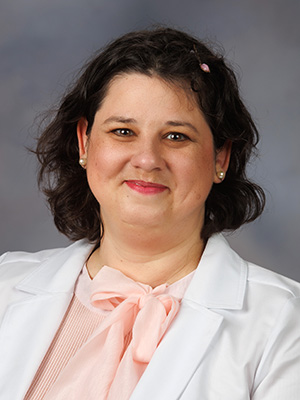How much protein is enough? Chances are, you’re already getting it
Powering up your protein intake with fancy snack bars and shakes works well if you’re on the rebound from illness or injury. For most of us, however, we’re already getting what we need.
It’s noted in dietary guidelines the average person aged 19 to 59 exceeds their daily protein recommendations. It comes from a variety of sources, including healthy whole foods and less healthy highly processed foods, but as with maintaining things like blood pressure and sugar, balance is the key, diet experts say.

“Contrary to all the hype that everyone needs more protein, most people in the United States meet or exceed their needs,” said Dacia Breeden, registered and licensed dietitian based at UMMC Cancer Center and Research Institute. “It’s also important to remember that the body can't store protein, so once the body has met its protein needs, any extra will either be excreted out or stored as fat.”
Actual deficiencies of protein are rare in the U.S. and only occur if someone has gone prolonged periods of time with little to no food and has exhausted their stores or has a chronic disease that inhibits the absorption of protein or other nutrients, Breeden said.
“We should also keep in mind all whole foods contain amino acids, the precursor to whole proteins,” she said. “So, even a diet of mostly fruit and vegetables without a whole lot of meat, for instance, can still help meet your protein needs as long as you’re eating enough calories for your weight.”
The average adult needs 0.8 grams of protein per kilogram of body weight, which can be translated to pounds by dividing your weight in pounds by 2.2, then multiplying the result by 0.8. For example, someone weighing 165 pounds (75 kilograms) needs 60 grams of protein per day.
The calculation can also be done using a base of 0.36 grams per pound of body weight. Those trying to lose weight should do the calculation using their ideal weight instead of their current weight.
Athletes, older adults, pregnant women and super-active individuals who do regular intense exercises such as mile-long daily runs may need to go higher than 0.8 grams, often with protein supplements of various forms. Those looking to build muscle may also have higher protein needs, typically up to 1.7 grams per kilogram of weight.
“It can also be figured using your calorie goals,” she said. “Protein should account for between 10% and 35% of your calories. So, if your daily needs are 2,000 calories, that's 200-700 calories from protein or about 50-175 grams.”
Full attention paid to balanced nutrition from protein to vitamins could also mean a lower risk of extreme health outcomes.

“A healthy, well-balanced diet with plenty of fruit and vegetables, along with good sources of fiber and lean protein, can go a long way in helping to prevent new forms of cancer and fight existing diagnoses,” said Mary Harkins, nurse practitioner for hematology and oncology also based at CCRI, citing recommendations from the American Institute for Cancer Research. “While the risk for getting cancer is complex and not always preventable by diet, it is becoming more important to control what we can, namely the food we put in our bodies. Good nutrition is one more tool that we can use against this costly and devasting disease.”
A balanced meal generally contains 15 to 30 grams of protein per meal. Some examples Breeden gives of plates that provide ample vitamins and minerals and exceeds the RDA of protein include:
Breakfast: 300 calories, 20 grams protein
½ cup Greek yogurt
½ cup blackberries
1 ounce almonds
Lunch:460 calories, 20 grams protein
2 cups lentil soup
2 cups green salad
1 whole wheat dinner roll
Snack:220 calories, 5 grams protein
1 cup raspberries
2 Tbsp nut butter
Supper:500 calories, 45 grams protein
4 ounces cooked chicken breast, about 26 to 30 grams of protein alone
1 cup cooked brown rice
1 cup cooked broccoli
The above article appears in CONSULT, UMMC’s monthly e-newsletter sharing news about cutting-edge clinical and health science education advances and innovative biomedical research at the Medical Center and giving you tips and suggestions on how you and the people you love can live a healthier life. Click here and enter your email address to receive CONSULT free of charge. You may cancel at any time.



